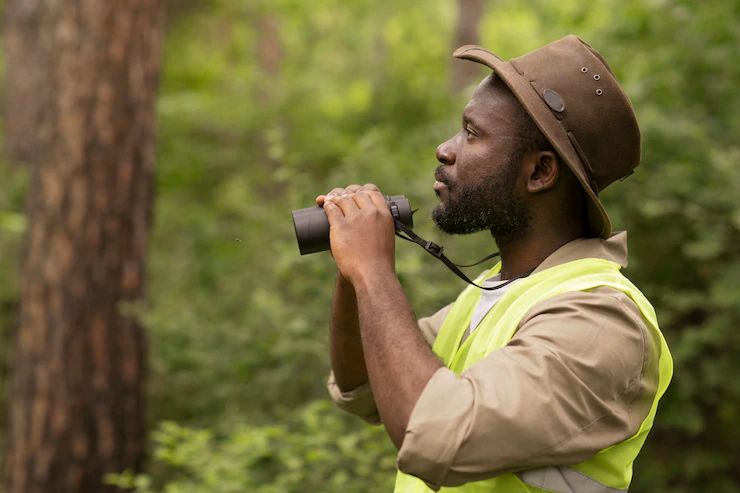Here are 10 things you should know about a Forester job:
- Role and Responsibilities: Foresters are professionals who manage and oversee forests and natural resources. Their responsibilities include assessing forest health, planning and implementing timber harvests, managing wildlife habitats, preventing and controlling forest fires, and promoting sustainable land use practices.
- Education and Qualifications: To become a forester, a bachelor’s degree in forestry or a related field is typically required. Some employers may prefer candidates with advanced degrees or professional certifications. Additionally, field experience through internships or practical training is valuable for gaining practical skills and knowledge.
- Fieldwork and Office Work: Foresters often work in a combination of field and office settings. Fieldwork involves conducting forest inventories, measuring tree growth, assessing tree health, and overseeing logging operations. In the office, they analyze data, prepare reports, develop management plans, and communicate with stakeholders.
- Environmental Stewardship: Foresters play a crucial role in environmental stewardship. They strive to maintain the health and sustainability of forests, ensuring biodiversity, conserving water resources, and managing habitats for wildlife. They also focus on mitigating the impact of climate change through practices like reforestation and carbon sequestration.
- Collaboration and Communication: Foresters frequently collaborate with various stakeholders, including landowners, government agencies, conservation organizations, and timber companies. Effective communication skills are essential for coordinating efforts, negotiating agreements, and addressing concerns of different parties involved.
- Knowledge of Forest Ecosystems: Foresters possess a deep understanding of forest ecosystems, including tree species identification, forest ecology, soil science, and the interdependencies between flora and fauna. This knowledge helps them make informed decisions regarding forest management practices and conservation strategies.
- Conservation and Restoration: In addition to timber production, foresters prioritize conservation and restoration efforts. They develop strategies to protect endangered species, restore degraded areas, establish wildlife corridors, and promote sustainable land use practices to ensure long-term ecological balance.
- Fire Management: Forest fires are a significant concern, and foresters often have a role in fire management. They develop and implement fire prevention plans, conduct controlled burns for forest health, and respond to wildfires by coordinating firefighting efforts and minimizing damage to forest resources.
- Technological Proficiency: Foresters utilize various technological tools and software to assist in their work. Geographic Information Systems (GIS), remote sensing, and data analysis tools help them map forests, monitor changes, and make informed decisions based on accurate data and modeling.
- Professional Organizations and Continuing Education: Foresters often belong to professional organizations such as the Society of American Foresters (SAF) or state-specific forestry associations. These organizations provide networking opportunities, access to resources, and continuing education to stay updated with the latest research, regulations, and best practices in the field.
Join 'Farmers Mag' WhatsApp Channel
Get the latest Farming news and tips delivered straight to your WhatsApp
CLICK HERE TO JOIN






